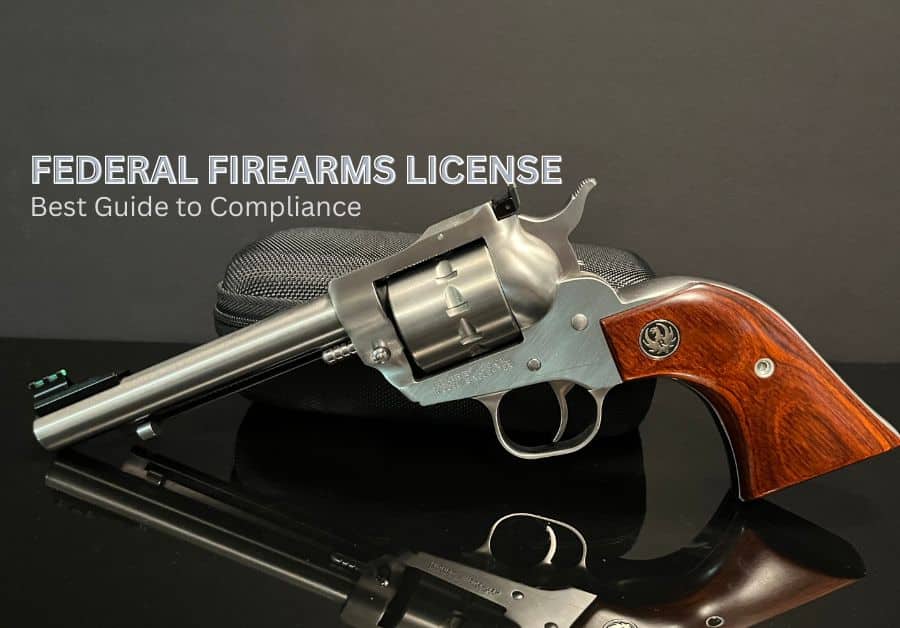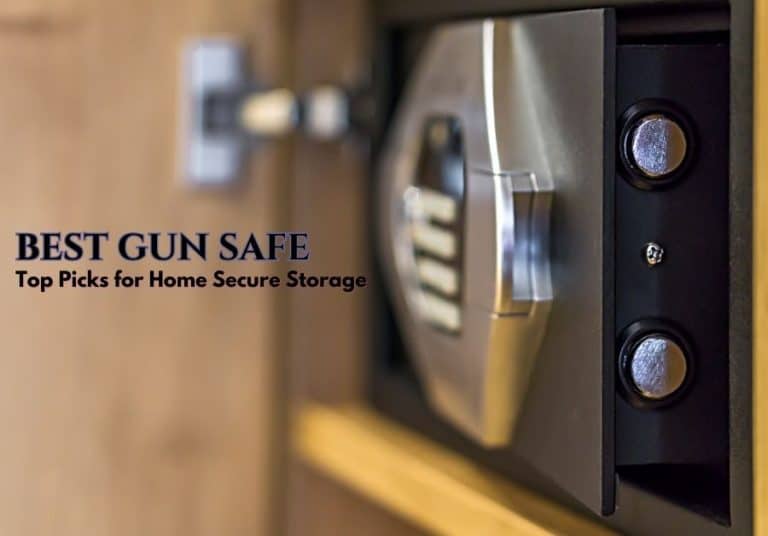If you’re considering selling, manufacturing, or importing firearms in the United States, obtaining a Federal Firearms License (FFL) is essential.
This license is required for anyone planning to work in the firearms and ammunition industry, ensuring legal compliance for business operations in these areas.
KEY TAKEAWAYS
As a lawyer, I guide clients through the FFL application process to help them meet the requirements efficiently and confidently.
The FFL, administered by the Bureau of Alcohol, Tobacco, Firearms, and Explosives (ATF), includes specific regulations designed to promote public safety under the Gun Control Act. I ensure my clients are prepared for background checks, paperwork, and compliance with federal laws.
While the FFL process may seem complex at first, I’ve found that with the proper guidance, it can be straightforward. By carefully following each step, you can legally enter the firearms industry and operate in full compliance with federal standards.
Understanding Federal Firearms Licenses
Federal Firearms Licenses (FFLs) permit you to engage in activities like dealing, manufacturing, or importing firearms. Obtaining an FFL involves meeting specific criteria set by federal regulations and ensuring that you operate your business legally and responsibly.
What FFL Stands For
Federal Firearms Licenses (FFLs) are essential permits that allow you to legally deal, manufacture, or import firearms.
Obtaining an FFL means meeting specific criteria outlined by federal regulations, which help ensure that your business operates legally and responsibly.
In my experience as a lawyer, I work closely with clients to address these requirements, helping them understand each step and stay compliant with all legal standards.
Types of FFLs
There are several types of FFL licenses, each tailored to specific activities within the firearm industry. Examples include:
- Type 01: Dealer in firearms other than destructive devices.
- Type 02: Pawnbroker in firearms other than destructive devices.
- Type 07: Manufacturer of firearms and ammunition.
Understanding these different types of FFLs is crucial for choosing the right one for your business. Each type comes with its specific permissions and restrictions.

Eligibility Criteria for FFLs
To qualify for an FFL, you need to meet certain eligibility requirements. First, you must be at least 21 years old. You’re required to conduct a business under federal regulations. Also, you must pass a background check conducted by the ATF.
Individuals known as “responsible persons” are closely examined. Compliance with local and state laws is necessary. The Federal Firearms Licensing Center will review your application if you meet all the legal requirements. Approval ensures that you can legally operate as an FFL holder.
The FFL Application Process
Applying for a Federal Firearms License (FFL) involves several steps, including preparing necessary documents, understanding the different types of licenses, and ensuring legal compliance.
Preparing the Application
When helping clients start their FFL application, I always emphasize the importance of completing ATF Form 7 accurately, as any errors can delay approval.
I guide them through gathering the required supporting documents and choosing the best payment option, whether it’s a credit card or money order, to ensure a smooth application process.
Once your documents are ready, mail the completed form to the address provided on the ATF website.
Getting everything in order might take some time, so it’s best to begin this step early. You might have to wait up to 60 days for the application to be reviewed, according to the ATF FFL Application Process and Procedures.
Types of FFL and Associated Fees
There are different types of FFLs, each tailored to specific activities in the firearms industry. It’s essential to understand which license you need before applying.
Type 01 is for dealers, while Type 07 is for manufacturers. Your choice determines the application fee and the scope of your business activities.
Application fees vary depending on the FFL type. For example, a Type 01 license costs more than a Type 07. It’s crucial to budget for these fees in advance.
Meeting Legal Compliance
Compliance with federal laws is crucial in the FFL application process. You must ensure that your business location and practices meet all legal standards.
An Industry Operations Investigator may conduct an in-person interview to verify your setup, including checking that your premises are secure and suitable for firearms activities.
As a lawyer, I always remind clients that this interview is an important step in gaining approval.
I help them prepare by reviewing security measures and ensuring their business location aligns with all federal requirements, so they’re ready for a successful inspection.
Understanding the National Firearms Act and other regulations is key to avoiding legal issues. Contact the ATF if you have questions or need clarification about legal requirements.
Their support can help ensure your application is processed smoothly, as detailed in the FFL Licensing FAQs.
Operating as an FFL

Conducting Business with Firearms
As a federal firearms licensee, you can sell firearms in the regular course of trade. This means adhering to strict guidelines when conducting firearms transactions. If you operate at gun shows or work out of pawn shops, these same rules apply.
Make sure to verify the identity of your customers and conduct background checks. This helps in preventing gun violence by ensuring firearms are sold responsibly.
FFL Compliance and Record-Keeping
Staying compliant is crucial in operating a firearms business. Record-keeping requirements include maintaining a detailed bound book of firearms transactions. This book should record the acquisition and disposition of each firearm.
Your records may be reviewed by the Bureau of Alcohol, Tobacco, Firearms, and Explosives (ATF) at any time. For home-based FFLs, keeping records in order is just as significant. Accuracy can protect you from legal issues.
Special Considerations for Different FFLs
The responsibilities tied to an FFL differ based on the specific license type. For instance, importers of destructive devices, ammunition manufacturers, and firearms manufacturers have additional regulatory requirements.
Handling NFA firearms, like fully automatic machine guns, involves even stricter regulations.
When advising clients, I make sure they understand the specific obligations associated with their license type. For those dealing with NFA firearms or other specialized areas, I help clarify the additional compliance steps needed to meet federal standards securely and responsibly.
Conclusion
Having a Federal Firearms License (FFL) opens up various possibilities for you in the firearms industry. It allows you to legally purchase, sell, and even manufacture firearms. It’s a key part of ensuring public safety and regulation.
To get started, there are different types of FFLs you can consider. For instance, a Type 01 FFL is standard for dealers, while a Type 07 FFL allows manufacturing.
Each type’s cost and requirements vary, so picking the right one is essential for your needs. You can find more details on the different FFL types.
Applying for an FFL involves several steps, such as completing ATF Form 7 and passing a background check. Additionally, you’ll need to pay fees and possibly meet local requirements.
Staying informed about the application process can make things smoother for you. For detailed steps, check out this application guide.
Remember to stay updated on regulations and best practices to remain in compliance with federal laws.
Regularly reviewing resources from the ATF and other reliable sources will support your efforts. I always suggest visiting the ATF’s Federal Firearms Regulations Reference Guide for additional information.
Frequently Asked Questions
What are the different types of Federal Firearms Licenses available?
Federal Firearms Licenses come in several types, each serving different purposes. For example, a Type 01 FFL is for gun dealers, while a Type 03 is for collectors of curios and relics.
How can I find a licensed Federal Firearms Dealer in my area?
You can use the search tools on the ATF’s website to locate an FFL dealer. This platform offers an easy way to find nearby dealers by entering your zip code or city.
What are the necessary steps to apply for a Federal Firearms License?
Applying for an FFL involves several key steps. You must complete an ATF application, submit fingerprints and photographs, and pay the required fee. Detailed guidelines help streamline this process to ensure compliance with federal regulations.
What are the requirements for operating a home-based FFL?
Operating a home-based FFL requires meeting zoning laws and having secure storage for firearms. You’ll also need to conduct business with integrity, comply with record-keeping rules, and pass a thorough background check to maintain your license.
How are the costs for various FFL types determined?
The cost of an FFL depends on the type of license you apply for. For instance, a Type 01 FFL costs $200 for the first three years, whereas a Type 03 FFL is just $30 for the same period.
What constitutes the prerequisites for obtaining a Type 07 FFL?
To obtain a Type 07 FFL, which includes manufacturing firearms, you must meet general FFL requirements, such as being over 21 years old and not having a criminal record. Additionally, you should prepare for a more detailed business plan and compliance with further regulations.







